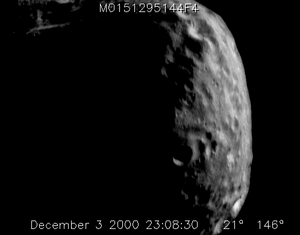Rotation period facts for kids

In astronomy, a rotation period is how long it takes for an object in space to spin around its own center. Imagine a spinning top; the time it takes to complete one full spin is its rotation period. This measurement is taken compared to the distant stars.
Contents
What is a Rotation Period?
A rotation period tells us how fast a planet, moon, or asteroid spins. It's the time it takes for an astronomical object to make one full turn on its axis. An axis is an imaginary line that goes through the center of an object, around which it spins.
Earth's Rotation
For our Earth, one full spin is called a sidereal day. This is about 23 hours, 56 minutes, and 4 seconds. This is the time it takes for Earth to rotate once compared to the distant stars.
Sidereal Day vs. Solar Day
You might be used to a day being 24 hours long. That's a solar day. A solar day is measured by how long it takes for the Sun to appear in the same spot in the sky (like directly overhead) from one day to the next.
The solar day is a little longer than the sidereal day. This is because while Earth is spinning, it's also moving around the Sun. So, Earth has to spin a little extra to bring the Sun back to the same position in the sky.
Rotation Periods of Other Planets
Every planet in our Solar System has a different rotation period:
- Mercury: It spins very slowly. One day on Mercury lasts about 59 Earth days!
- Venus: This planet spins backward and even slower than Mercury. One day on Venus is longer than its year! It takes about 243 Earth days to spin once.
- Mars: Mars spins at a speed similar to Earth. A Martian day is about 24 hours and 37 minutes.
- Jupiter: This giant planet spins incredibly fast. A day on Jupiter is only about 10 Earth hours long.
- Saturn: Like Jupiter, Saturn spins quickly. A day on Saturn is about 10.7 Earth hours.
- Uranus: Uranus spins on its side! A day there is about 17 Earth hours.
- Neptune: Neptune also spins quite fast. A day on Neptune is about 16 Earth hours.
Why is Rotation Important?
Rotation periods are important for many reasons:
- Day and Night: A planet's rotation causes day and night cycles. The side facing its star has day, and the side facing away has night.
- Weather and Climate: The speed of a planet's rotation can affect its weather patterns and how heat is distributed around the planet.
- Shape of Planets: Fast-spinning planets, like Jupiter and Saturn, tend to bulge out at their middle (equator) and flatten at their poles.
See also
 In Spanish: Período de rotación para niños
In Spanish: Período de rotación para niños
 | Janet Taylor Pickett |
 | Synthia Saint James |
 | Howardena Pindell |
 | Faith Ringgold |

